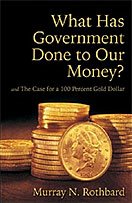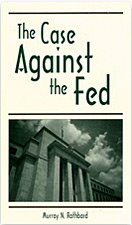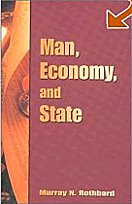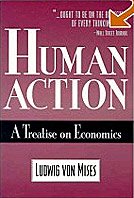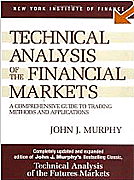Oikonomika Blog
* In Aurum Securitas *
Modern economics is not rocket science.
In fact, it's not science at all. It's a game, a confidence game.
Once paper passed for money, economics became an elaborate
shell game designed to hide the fact paper had been substituted for silver and gold.
The shell game is called "Where's The Money?"...
The answer is simple, it's not there.
Sep 30, 2008
Sep 29, 2008
Bailout: here's the deal
The move, backed by both Republican and Democratic leaders, allows the Treasury to spend up to $700bn (£380bn) buying bad debts from ailing banks in the US.
President George W Bush urged lawmakers to support the bill, which needs approval by both houses of Congress.
Some Republicans have voiced objections to massive state intervention in the financial sector.
The deal was announced after days of high-level wrangling between Republicans and Democrats in Congress over the content of the bill.
Both parties had vigorous objections to a proposal submitted last week by Treasury Secretary Henry Paulson that would have given him sweeping powers over how the money was spent.
To read the entire Emergency Economic Stabilisation Act draft, please click HERE
Labels: financial crisis, market manipulation, markets
Sep 26, 2008
U.S. Mint suspends sales of 1 oz gold Buffalos
Reuters
Thursday, September 25, 2008
NEW YORK -- The U.S Mint said Thursday it was temporarily suspending sales of American Buffalo 24-karat gold one-ounce bullion coins because strong demand depleted its inventory.
"Demand has exceeded supply for American Buffalo 24-karat gold one-ounce bullion coins, and our inventories have been depleted. We are, therefore, temporarily suspending sales of these coins," the Mint said in a memorandum to authorized American Buffalo dealers.
The Mint also told dealers that it would work to build up its inventory to resume sales shortly.
In mid-August, a shortage of American Eagle one-ounce gold coins due to "unprecedented" demand had also forced the U.S. Mint to temporarily suspend sales of the popular coins.
The Mint said Thursday it would continue to supply the American Eagle 22-karat gold one-ounce and American Eagle silver bullion coins on an allocation basis to coin dealers.
In addition, the half-ounce, quarter-ounce, and 1-10th ounce American Eagle gold coins and American Eagle platinum were also available, the Mint said.
Coin dealers from the United States to Canada have recently reported a surge in buying of bullion coins and other gold products as troubles in the financial markets prompted people to seek a safe haven in precious metals.
On Thursday, the U.S. gold contract for December delivery ended down $13 or 1.5 percent at $882 an ounce on the COMEX division of the NYMEX, while spot gold traded at $873 an ounce.
Bullion hit an all-time high of $1,030.80 an ounce on March 17.
* * *
...and a snippet from BullionVault:
"...Longer-term, says Roland Duss - co-chief investment officer at Gonet & Cie, the Swiss private bank based in Geneva - the price of Gold Bullion could reach $2,000 or more per ounce over the next decade.
"We are still in a commodities bull market," Duss told London's CityWire news service on Wednesday.
"The growth in demand from emerging economies is such that it will exceed supply, so we are bound to have price hikes for another five to 10 years."
Duss says 95% of additional demand for energy, metals and other raw materials is coming from emerging economies. Developed OECD countries simply don't have an impact.
"On the supply side [in contrast] there is a lot of destruction. For metals, there are too many cost increases, which means that some mines are not going to be there."
World gold mining output peaked in 2003. Ian Henderson, head of J.P.Morgan's $5bn Natural Resources Fund, believes we need "a sustained price level of over $1,200 an ounce before we see any significant new mine build."
The CEO of world No.4 gold miner Gold Fields, Nick Holland, says his company's assets would require a market-price of $2,000 and above "if you tried to build these mines today" to justify the investment.
"Already at cost levels between $600-700 an ounce," notes the latest Precious Metals Weekly from Wolfgang Wrzesniok-Rossbach at Heraeus - the German refining group - "many mines will find it difficult to continue production.
"This should put a check on fresh supply. At lower prices, the feasibility of processing 'scrap gold' [meaning old jewelry and electronic bonding wire] will also be severely tested - and at the same time it should significantly encourage jewelry demand.
"As such, in the next 15 months, we do not see the gold price falling for any extended period of time below these levels"
***
Sep 25, 2008
Chris Powell: Bailout can't hide it; the country is busted
Journal Inquirer, Manchester, Connecticut
Thursday, September 25, 2008
Even leading Republicans in Congress, including presidential nominee John McCain, recoiled from Treasury Secretary Henry M. Paulson's proposal to take absolute power over $700 billion to be borrowed by the federal government and used to purchase every sort of bad debt without ever having to answer for it -- not to the courts, not to regulatory agencies, and only occasionally and incidentally to Congress itself.
The bad-debt bailout would be the biggest government patronage program in history and would amount to declaring martial law over the U.S. financial system and economy. Even if such martial law is necessary, its implementation should be put in democratic hands -- a non-partisan agency with full transparency, statutory standards for its purchases, and close accountability to Congress.
All the same, even if it can work -- that is, prop up insolvent financial institutions -- the Treasury's proposal is still a proclamation of the collapse of the whole U.S. financial system. Even if some financial institutions are saved, the collapse will manifest itself in other ways, probably ways more damaging to the public. For who cares if Goldman Sachs and Morgan Stanley endure if the issuance of $700 billion more in government bonds drives interest rates way up, diverts credit from the private economy, devalues the already sinking dollar, and sends commodity prices soaring again?
In that case the financial class will have won another battle in its long war against the producing class. It will be again as was said about the maneuvers of the Second Bank of the United States two centuries ago: "The bank was saved; only the people were ruined."
Injecting throughout the world financial system their bogus and unregulated financial instruments, like collateralized debt obligations and credit-default swaps, the big New York financial houses have taken the world economy hostage. The president and Congress should strive to save the hostages, not the kidnappers.
But the president and Congress have participated eagerly with the kidnappers in the total corruption of the financial system.
They have staffed the regulatory agencies largely from Wall Street and then diminished financial regulation.
They have let the financial houses finance presidential and congressional campaigns.
They have watched haplessly as accounting firms and credit-rating agencies engaged in conflict of interest and failed to do their jobs over and over again even as corporate scandal followed corporate scandal.
They have waged mistaken imperial war not with taxes but with huge amounts borrowed from abroad, making the country hostage to foreign nations, including some with hostile interests.
They have approved the government's falsification of inflation data and its surreptitious suppression of the price of gold so that interest rates could be set below the inflation rate, the government and everyone else could borrow more at lower interest, and the public would not become alarmed by monetary debasement.
Now the U.S. government is conjuring into existence via a few computer keystrokes fantastic, virtually inconceivable amounts of money. Unreal as these amounts are, they will be claims on the real goods and services of the country, and, if the rest of the world wants to keep playing along, which is doubtful, claims on the real goods and services of the rest of the world as well.
The purpose of all this will be to save the people who happen to be in charge of the payments system and to save the propertied class generally. But people without many assets, people who don't earn enough to own housing, people who could gain from lower housing prices and lower prices of everything else, are not even in the government's equation.
The country is simply busted. Its financial obligations are unpayable, its asset prices are illusions, and the great undertaking in Washington and New York is to preserve those illusions rather than face reality. If the price of preserving those illusions is $700 billion -- and of course it is more likely to run into the trillions -- could it really be more expensive to dispense with the illusions now? After all, instead of rescuing financial institutions that disregarded risk, the government just as easily could keep the country going by sending checks to everyone every month -- as it already sends Social Security checks to retirees.
But as long as the government keeps paying ransom, the financial class will keep taking the country hostage.
***
Labels: financial crisis
Text of Draft Proposal for Bailout Plan
TO PURCHASE MORTGAGE-RELATED ASSETS
This Act may be cited as ____________________.
Sec. 2. Purchases of Mortgage-Related Assets.
(a) Authority to Purchase.--The Secretary is authorized to purchase, and to make and fund commitments to purchase, on such terms and conditions as determined by the Secretary, mortgage-related assets from any financial institution having its headquarters in the United States.
(b) Necessary Actions.--The Secretary is authorized to take such actions as the Secretary deems necessary to carry out the authorities in this Act, including, without limitation:
(1) appointing such employees as may be required to carry out the authorities in this Act and defining their duties;
(2) entering into contracts, including contracts for services authorized by section 3109 of title 5, United States Code, without regard to any other provision of law regarding public contracts;
(3) designating financial institutions as financial agents of the Government, and they shall perform all such reasonable duties related to this Act as financial agents of the Government as may be required of them;
(4) establishing vehicles that are authorized, subject to supervision by the Secretary, to purchase mortgage-related assets and issue obligations; and
(5) issuing such regulations and other guidance as may be necessary or appropriate to define terms or carry out the authorities of this Act.
Sec. 3. Considerations.
In exercising the authorities granted in this Act, the Secretary shall take into consideration means for--
(1) providing stability or preventing disruption to the financial markets or banking system; and
(2) protecting the taxpayer.
Sec. 4. Reports to Congress.
Within three months of the first exercise of the authority granted in section 2(a), and semiannually thereafter, the Secretary shall report to the Committees on the Budget, Financial Services, and Ways and Means of the House of Representatives and the Committees on the Budget, Finance, and Banking, Housing, and Urban Affairs of the Senate with respect to the authorities exercised under this Act and the considerations required by section 3.
Sec. 5. Rights; Management; Sale of Mortgage-Related Assets.
(a) Exercise of Rights.--The Secretary may, at any time, exercise any rights received in connection with mortgage-related assets purchased under this Act.
(b) Management of Mortgage-Related Assets.--The Secretary shall have authority to manage mortgage-related assets purchased under this Act, including revenues and portfolio risks therefrom.
(c) Sale of Mortgage-Related Assets.--The Secretary may, at any time, upon terms and conditions and at prices determined by the Secretary, sell, or enter into securities loans, repurchase transactions or other financial transactions in regard to, any mortgage-related asset purchased under this Act.
(d) Application of Sunset to Mortgage-Related Assets.--The authority of the Secretary to hold any mortgage-related asset purchased under this Act before the termination date in section 9, or to purchase or fund the purchase of a mortgage-related asset under a commitment entered into before the termination date in section 9, is not subject to the provisions of section 9.
Sec. 6. Maximum Amount of Authorized Purchases.
The Secretary’s authority to purchase mortgage-related assets under this Act shall be limited to $700,000,000,000 outstanding at any one time (*)
Sec. 7. Funding.
For the purpose of the authorities granted in this Act, and for the costs of administering those authorities, the Secretary may use the proceeds of the sale of any securities issued under chapter 31 of title 31, United States Code, and the purposes for which securities may be issued under chapter 31 of title 31, United States Code, are extended to include actions authorized by this Act, including the payment of administrative expenses. Any funds expended for actions authorized by this Act, including the payment of administrative expenses, shall be deemed appropriated at the time of such expenditure.
Sec. 8. Review.
Decisions by the Secretary pursuant to the authority of this Act are non-reviewable and committed to agency discretion, and may not be reviewed by any court of law or any administrative agency.
Sec. 9. Termination of Authority.
The authorities under this Act, with the exception of authorities granted in sections 2(b)(5), 5 and 7, shall terminate two years from the date of enactment of this Act.
Sec. 10. Increase in Statutory Limit on the Public Debt.
Subsection (b) of section 3101 of title 31, United States Code, is amended by striking out the dollar limitation contained in such subsection and inserting in lieu thereof $11,315,000,000,000.
Sec. 11. Credit Reform.
The costs of purchases of mortgage-related assets made under section 2(a) of this Act shall be determined as provided under the Federal Credit Reform Act of 1990, as applicable.
Sec. 12. Definitions.
For purposes of this section, the following definitions shall apply:
(1) Mortgage-Related Assets.--The term “mortgage-related assets” means residential or commercial mortgages and any securities, obligations, or other instruments that are based on or related to such mortgages, that in each case was originated or issued on or before September 17, 2008.
(2) Secretary.--The term “Secretary” means the Secretary of the Treasury.
(3) United States.--The term “United States” means the States, territories, and possessions of the United States and the District of Columbia.
***
(*) ... please correct me if I'm wrong here, but is this a carte blanche for the Secretary to keep on spending ad nauseam? i.e. the $700 billion is a rolling amount, and not a ceiling!
Labels: financial crisis, market manipulation
Sep 20, 2008
Ken Gerbino:The World Gone Crazy and Your Gold Stocks
".... The Inflation vs. Deflation debate is a debate between Knowledge and Stupidity. History and Fantasy. Understanding and Confusion. When a stock portfolio goes from $2 million to $1 million this is in fact a "deflated" value but this does not cause a deflation in the economy. Even with $10 trillion of stock market losses it has little effect on the general price level of goods and services in an economy. The crash of 1987 saw $15 trillion of stock and bond losses in the U.S. An historic loss of asset values at the time. Yet inflation in 1988 and 1989 averaged 3.2% and 4.3% respectively. There was no deflation. The same concept is true for real estate. Real Estate losses in 1990-91 were in the trillions and the inflation rates in 1990, 91, 92 averaged 4% annually. There was no deflation. There never is with paper money."
"... There will be no deflation. If your adviser or broker or newsletter writer ever mentions this word send him this article and wise him/her up. Inflation is here to stay as prices have not gone down in this country in any year for the last 60 years despite the calls of the deflationists. During this time, despite market crashes, horrible recessions, and numerous real estate busts we have had no deflations. Paper money is inflationary and we are going to be flooded with more of it before the bailout of the global financial system is completed."
"...The Great Lie: For almost 75 years the Fed and the Treasury have promoted the following concept. Inflation is caused by a strong economy. This, of course, is a smokescreen for the truth that all inflations are caused by an increase in money supply. But with this stable datum that a strong economy causes inflation, the powers that be always had something else to blame for inflation. Money managers therefore thinking that if a strong economy causes inflation then a slow economy or a recession will cause less inflation. Therefore they reason "why own gold or the gold stocks". These were some of the guys selling the gold shares the last 3-4 months. They are so wrong."
"...Current gold buyers are most likely split between investors that believe a horrible deflation is coming and money will be wiped out so gold should be a good substitute and other investors who correctly understand that trillions of new dollars and foreign currencies are going to flood world economies to bail out the institutions and this will be very inflationary.
Both sides will have great conviction and this $90 move underlines those thoughts. Therefore, with the financial turmoil of this week gold and the quality mining stocks should move much higher with or without the stock market."
To entirely read this sobering article in its entirety, please click HERE
Labels: financial crisis, inflation, Ken Gerbino, mining stocks
Sep 19, 2008
Bugs were right about derivatives disaster, Citigroup analysts say
http://www.gata.org/files/CitigroupGoldReport092107.pdf
Now, Hill and Wark write, they're surprised that gold isn't already at $2,000 per ounce. Of course having already conceded central bank intervention, maybe they shouldn't be so surprised. But maybe it would be impossibly impolitic for them to write openly about intervention again now, especially since, as Kitco's Jon Nadler and Resource Investor's Tim Wood might assure us, the precious metals markets are the only markets in which central banks have NOT been intervening lately.
But the new report from Hill and Wark may be most satisfying to our side for another acknowledgement. As reported by Kosich, Hill and Wark write:
"It is notable that hard-core goldbugs have been proven correct in the decade-long contention that an overwhelmingly vast and complex pool of nested financial derivatives would ultimately result in cascading defaults and ruin for major portions of the banking system."
You can find the MineWeb account of the Citigroup report HERE
Labels: financial crisis, gold, market manipulation, mining stocks
Richard Russell: Hold your gold coins!
Extracted from the Sep 16, 2008 edition of Richard Russell's Remarks:
One advantage of gold coins is that you're not tempted to trade them (it's too difficult). As my buddy, old-timer Sir Harry Schultz puts it, "The last man standing is he who owns gold." Hold your gold coins."
...to read R. Russell's snippet on 321Gold, please click HERE
Labels: financial crisis, gold, Richard Russell
Sep 18, 2008
Ambrose Evans-Pritchard: Market votes no confidence in Fed
The Telegraph, London
Thursday, September 18, 2008
The global credit system came close to total seizure yesterday. Key parts of the derivatives market shut down and a panic flight to safety depressed the yield on three-month US Treasury bills to almost zero for the first since the Great Depression in 1934.
The closely-watched TED-spread measuring stress in the interbanking lending market rocketed to 238 as the share prices of Morgan Stanley, Goldman Sachs, Citigroup, Wachovia, and Bank of America all went into a tailspin yesterday.
The collapse in investor confidence is a harsh verdict on the judgment of the US Federal Reserve, which chose to ignore market pleas for a rate cut to halt what amounts to a modern-era run on the banking system. Almost none of the current Fed governors have market experience. Most are academic theorists.
The Fed had hoped that a targeted $85 billion (L47 billion) bailout for insurance giant AIG -- on onerous terms -- would be enough to stabilize the banks after the weekend failure of Lehman Brothers. Instead it set off a cardiac arrest at the heart of the credit system.
Bernard Connolly, global strategist at Banque AIG, said the Fed and the Treasury were doing too little, too late, to stave off disaster. Interest rates need to be cut immediately and dramatically, while Washington must prepare for a wholesale takeover of large parts of the lending system along the lines of the Scandinavian bank rescues in the early 1990s.
"Unless there is a very rapid change of mind, depression -- with all its horrors and consequences -- will be inevitable. The judgment that letting Lehman's go would not create systemic risk depended, if it was ever going to be anything other than ludicrous, on very rapid action to shore up the financial system. Instead, Hank Paulson seems to be adding to the risk in the system," he said.
"We fear that a virtual nationalisation of the financial system will now be necessary," he said.
America's Reserve Primary Fund suspended withdrawals after shareholders pulled out almost $40 billion in two days on news of its heavy exposure to Lehman's debt. The move came as the fallout from Lehman's collapse spread worldwide. Japan's Nikkei wire said Japanese banks would suffer almost $2 billion of losses on Lehman's bond defaults.
Russia suspended trading the Moscow bourse after the Micex index crashed 24 percent in two days. Officials promised $44 billion to support the banking system.
As Washington bails out one financial institution after another, investors have begun to doubt the long-term credit-worthiness of the US itself.
The cost of insuring against default on 10-year US Treasuries jumped to an all-time high of 30 basis points yesterday, as measured by the credit default swaps (CDS) on the derivatives markets. Germany is at 13, and France is 20.
"This is historically significant because we have never seen anything like it before," Daniel Pfaender, sovereign credit strategist at Dresdner Kleinwort.
"What we don't know yet is whether this a liquidity issue or whether it reflects the credibility of the US financial system."
The Treasury's rescue of the mortgage giants Fannie Mae and Freddie Mac has added $5.3 trillion in liabilities to the US government. It almost doubles the national debt (under IMF definitions), at least on paper.
The Fed has now added a further $85 billion in debt for AIG. While the sums are manageable so far, what worries investors is the likely avalanche of insolvencies yet to come.
The Federal Deposit Insurance Corporation has already exhausted half its capital cleaning up after the collapse of IndyMac. It may need half a trillion dollars of fresh money to cope with the 120-odd lenders on its sick list. Professor Nouriel Roubini from New York University warns that several hundred banks will go under before this hurricane has exhausted its fury.
John Chambers, head of sovereign ratings at Standard & Poor's, said America's AAA grade is safe for now. The Fannie/Freddie bailout is not comparable to ordinary state debt. It is backed by housing collateral, mostly based on prime mortgages.
"In the worst-case scenario, the losses from Fannie and Freddie will be 2.5 percent of GDP. This is not to belittle the unprecedented actions of the last two weeks.
"For the US to lose its AAA we would have to see the sort of financial distress that occurred in the Nordic countries. It could get that bad. There's no God-given gift of a AAA rating. The US has to earn it like everyone else," he said.
Charles Dumas from Lombard Street Research said America's dependence on foreign money would carry a high price. "The ultimate test will be whether this seriously jeopardizes the reserve currency role of the US dollar. China finances the US government. So as long as the Chinese are willing to accept an annual loss of 15 percent on their holdings of US bonds in real yuan terms, this can go on, but the decision lies in Beijing. What is clear is that it will take the US decades to pay this off," he said.
Hans Redeker, currency chief at BNP Paribas, says the US debt scare is vastly overblown. America's total government debt is 48 percent of GDP on IMF measures, compared to 57 percent for Germany, 94 percent for Japan, and 108 percent for Italy.
"The debt levels are nothing compared to Europe, even after Fannie and Freddie. America still has great leeway," he said.
"We think the next phase of this crisis is going to be a repatriation story as American investors bring their money back from frontier markets. The US broker dealers were 60 times leveraged and now they need to take assets back onto dollar balance sheets."
Albert Edwards, global strategist at Societe Generale, said Washington's serial bailouts are the inevitable result of the credit bubble of preceding years. "This was all baked in the cake long ago. What we have seen so far is just a dress rehearsal for the deep recession that is coming. America is going to be losing 500,000 jobs a month. That is when we will see interest rates go to zero. The deficit will be covered with printed money as it was in Japan. The endgame will be helicopters full of cash dropped by Ben Bernanke," he said.
* *
Labels: Ambrose Evans Pritchard, financial crisis, markets
Sep 17, 2008
Sep 8, 2008
Ron Paul: In Government We Trust?

Part I
"Many who agree with me on a lot of other issues, do not understand my enthusiasm for gold and sound money or why I spend so much time studying and talking about monetary policy. It's true that I talk about money differently than most, but the fact is sound money offers many benefits. For example – peace.
Can sound money really bring about peace? Actually, it plays a big part in peaceful international relationships. Money based on commodities, rather than paper, is not subject to government manipulation, and is a key component to free and honest trade. History shows that if countries engage in trade with each other, their governments tend to find ways to get along for the same reason you do not kill your customers at your place of business, even if they occasionally annoy you. If someone outright cheats you, however, you may engage in “war” by taking them to court, for example, and the relationship will sour. Governments and central banks with unfettered power to manipulate currency also have the ability to cheat their creditors. One way they do this is to simply create enough currency to pay off debts. This devalues the currency and “cheats” the recipient out of what they are owed. It would not be fair if you watered down your product the way our government waters down its currency, so it is not hard to understand, in these simplified terms, why loose monetary policy contributes so much to ill will and war around the world.
Sound money, on the other hand, simply is what it is. Removing governmental power to manipulate money, removes the temptation for government to spend, print and cheat. Sound money ensures that our government’s spending priorities would be brought into sharp focus and reduced to only what we can afford.
Sound money also limits the ability to wage wars of aggression. Imagine how much more careful Washington would have to be about starting a war if they did not have this financial sleight of hand at their disposal! Fiat currency allows government do expensive things they should not be doing while paying the bills with cheap money. The Federal Reserve has lately been auctioning off large amounts of treasury bills as a way to finance the wars in Iraq and Afghanistan, and our crushing entitlement burden. The resulting devaluation of the dollar is quickly eroding our image as a good trading partner in the world. As a consequence, there is therefore more talk of economic isolation and war.
This vicious cycle of spending, fighting and inflating is not what Americans want. It is what the government wants, and it has had to deceive the citizens into allowing and supporting it. Sound money curbs the government’s ability to engage in these shenanigans and reduces the wars we fight to only truly defensive ones, for which Americans are more than willing to stand and fight. So in these ways, sound money is very conducive to peace."
Part II
"Last week I discussed how sound money contributes to peaceful relationships around the world. It is not gold, in and of itself that excites me, but the many benefits of sound money. Another benefit is financial security.
Can sound money give you financial security? There is something very comforting in knowing that what you earn today will retain its purchasing power in the years to come. Indeed, the same silver dime that bought a loaf of bread in the 1960's can still buy a loaf of bread with its precious metal content – which is worth about $1.00 today. An ounce of gold has always been about evenly exchangeable for a finely tailored men's suit, which these days is roughly $800. And in these days of fluctuating gas prices, when priced in gold, oil has been stable. Meanwhile, since the creation of the Federal Reserve, the fiat dollar has lost 94f its purchasing . The erosion of purchasing power rapidly accelerated when it was completely uncoupled from gold in 1971. This sort of fluctuation in the medium of exchange creates a lot of uncertainty in the marketplace and necessitates that you either take extraordinary defensive maneuvers, or face financial ruin. Trusting in government for financial security in retirement is not a safe option. Indeed, a recent study by the Consumer Bankruptcy Project shows that bankruptcies among those 75 and older has more than quadrupled since 1991. This represents wealth and savings that have been eroded by inflation, and trust in entitlement promises that were more fantasy than reality. Even with the pittance that social security pays to seniors, it is bankrupt and bringing the economy to its knees. It is no wonder that many in the younger generations want no part of it, and they should not be forced into a failed system.
On the other hand, holding physical gold can defend against aggressive government monetary policies that threaten to inflate away the value of your life savings. During the hyperinflation in post WWI Germany, what used to be a comfortable nest egg was suddenly the value of a postage stamp. If one held just a portion of their savings in precious metals, the crisis was greatly softened. Gold will never be worth nothing, even if the exact price fluctuates. There is a famous photograph, however, of a German woman during this time period burning piles of tightly bound banknotes to keep warm.
Imagine if the money you earned had honest, stable value, or even appreciated like an investment! No such special measures, like converting dollars to gold, would be required to ensure that your savings would sustain you in your golden years. That is the way it could be and is supposed to be. However, the government's thirst for power will not be easily, or cheaply, quenched. Fiat currency is one tool governments have to extract wealth quietly from the working class. It is time for the people to wake up to this ruse and look to the Constitution to restore sound currency."
Labels: fiat money, financial crisis, gold standard, inflation, Ron Paul
Sep 5, 2008
Mises Institute: Is Gold Money?

"... What qualities have made gold (and silver) the winners of the monetary competition in centuries past? The qualities most often cited by monetary historians are durability, divisibility, recognizability, portability, scarcity (the difficulty of producing more of it), and a value-to-weight ratio that is neither too high nor too low. Too low a ratio would make it hard to carry enough for spending, while too high a ratio would make small transactions difficult and prevent the commodity from being sufficiently widely owned in the prior barter economy. Gold still has these qualities today. While fiat money has some of them, it fails the scarcity test: it is too easy to create more of it.
The result of market competition is not necessarily permanent. Market competition is an ongoing process. Even when one commodity emerged as money, there continued to be competition from other nonmonetary commodities. Once the world's money, even gold could have lost its place had a superior alternative emerged. But that is not the reason we no longer use it. Political money did not prove its superiority through a market process. What happened instead was a politically imposed change from a better system to a worse system.
Although the central bankers have used political means to replace gold with paper, they do not have the power to end the competition between their money and commodity money. The "demonetization" of gold by central banks has rigged the competition — but not ended it.
Gold as money may not be over for all time. As the monetary system melts down, gold functions as "shadow money," an alternative that competes with the political money. It remains a store of value because of its potential to become money again. There is continuing demand for gold as a hedge against the breakdown of the fiat system.
Governments cannot force people to use their money beyond a point. The market will only continue to accept fiat money as long as it works well enough (or even, not too badly). If governments debase its currency beyond a point where it maintains some value over time, people will stop using government currency and switch to something else."
Please click HERE for this fascinating article.
Labels: Austrian Theory, central banks, fiat money, gold, gold standard, Ludwig von Mises, money
Antal Fekete: "...the hour-glass for the endgame is filled with gold dust, not with sand"
"... The latest severe correction in the dollar price of gold and devastation in the price of silver illustrates my point. The only rational explanation for this extraordinary decline in the midst of an extraordinary monetary crisis is the disconnect between the price of paper gold and the price of real gold. Of course, we have known all along that the government considers it as its sacred duty to manipulate the gold price by hook or by crook. The best way of going about it at this juncture is to engineer a disconnect between paper gold and real gold in the hope that the fall of paper gold will demoralize the market with the result that real gold will be dislodged even from firm hands. The delivery mechanism of gold futures contracts, and that of other forms of paper gold such as ETFs, is made subject to manipulation on purpose. However, they may manipulate the price of paper gold to their heart's content; it is not and never will be in their power to manipulate the gold basis. Properly interpreted, variation in the basis instantaneously reveals the fact and extent of paper gold manipulation. I dedicate the last Session of Gold Standard University Live to the task of showing how to arrive at this proper interpretation of the basis, and how to turn manipulation to your advantage by making the basis a trading tool.
You must understand that the gold market, as it is presently constituted, is a gambling casino where the tail wags the dog. The casino owner is a secret agent of the U.S. Treasury. Shills abound. Bluffing and false-carding is rampant, and the bluff is hardly ever called. The reason for this is the widespread assumption that the managers of the irredeemable dollar have near supernatural power. They don't, of course, but they have succeeded in eliminating the last vestiges of transparency on the gold holdings of the US Treasury, and they obscure the purpose for which it is held. They pretend that the purpose of Treasury gold is to keep the demand for real gold in check; in reality, without gold in the Treasury the U.S. could not keep garrisons in every part of the world even against the wishes of the local population, nor could it fight several wars at once in several distant theaters. There would be no local suppliers selling them ordnance.
Managers of the irredeemable dollar can double-count and triple-count Treasury gold with impunity in order to fool outsiders, in order to keep the demand for real gold in check and to shift all such demand to paper gold. In the meantime, all we have is the telltale mark of the basis, if you know how to read it.
But the hour-glass for the endgame is filled with gold dust, not with sand. When the last peck of gold is gone, prestidigitation is up. That will be the most dramatic event in the entire history of money, an event that I have, tongue in cheek, called "The Last Contango in Washington". The basis will give you an early warning signal. That is what Darryl Robert Schoon, who will also be lecturing and available for questioning at Session Five, calls "the silver canary singing in the gold mine". Come to Canberra and hear Darryl as he explains the riddle."
To read Antal Fekete's entire article titled "Cut Off Your Tail To Save My Face" please click HERE
Labels: Antal Fekete, fiat money, gold, gold standard, market manipulation
Sep 2, 2008
Peter Brimelow: Radical gold bugs say manipulation will fail
MarketWatch.com
Tuesday, September 2, 2008
NEW YORK -- Down but not out.
The radical gold bugs have taken some body blows recently, but they're still fighting, and gold is still struggling back.
When I last wrote about gold, I announced I was changing my formula. My previous three columns had noted that gold's fundamentals were favorable and that it appeared to be breaking out technically, perhaps beginning its long-heralded blow-off.
All were promptly followed by sharp gold price declines.
So I reverted to the formula that worked in the spring: noting a big decline in gold accompanied by ghastly technicals -- but also that the radical gold bugs grouped around Bill Murphy's LeMetropoleCafe.com remained cheerful because they lay far more emphasis on physical offtake market than is conventional.
The result this time, alas: another disaster, only worse. Comex gold dropped a stunning $36.50 that day and closed down another $36.20 the following Thursday -- at $792.10.
Since then it has been doggedly edging higher. But on Labor Day, unusually for a day with America closed, gold was very active, dropping $14 to around $817.
So now here is a third pattern, repeated again this week: technicals/sentiment appalling. Gold rise unexciting. LeMetropoleCafe gang cheerful -- in fact, ecstatic.
Scrupulously recognizing the facts, the Australian goldbug service The Privateer commented this weekend on its authoritative $5x3 point and figure chart:
"Technically, the formation on this chart is definitely the signal of a bear market. You can see this week's rebound on the chart, but the price still remains below the uptrend line."
The Privateer makes this chart available here:
http://www.the-privateer.com/chart/gold-pf.html
So why are Bill Murphy's men so confident? Because the physical market is behaving in an unprecedented way.
LeMetropoleCafe lays heavy emphasis on India, by far the biggest factor in the international gold trade. The site evaluates Indian conditions by considering if the Indian gold price is high enough above world gold to permit imports.
Right now, it is. On Tuesday their correspondent said:
"I believe such a prolonged period of super premiums is unprecedented since gold imports were liberalized in India in the 1990s. It is a testament to the ferocity of the selling interest."
LeMetropoleCafe has found an ally in the person of John Reade of UBS, itself a major gold dealer. On Thursday the site quoted Reade, who issued a "Tactical Buy" that day, saying, "Over the past three weeks we have noted unprecedented physical gold demand from India, some European consumers, and other Asian clients. Demand is also very strong from Turkey and the Middle East. ... The last time we issued a strong tactical buy recommendation in gold was in August 2007 at $660/oz."
So what is standing in gold's way?
Plenty, if you read Moming Zhou's recent MarketWatch story: It appears that a small group of U.S. banks were shorting massively into the last swoon.
If, as the LeMetropoleCafe mob suspect, this selling is for official accounts, the gold price is fighting City Hall.
But this kind of intervention is extremely expensive -- because gold bars cannot be printed.
Gold Money's James Turk says he's seen it all before:
"The present situation reminds me of August 1976, just weeks before the Democratic convention confirmed Jimmy Carter as that party's presidential candidate. Gold slid down to $100 per ounce even as the inflation and economic outlooks were worsening. Gold looked dirt-cheap back then even though its price had risen three-fold from just a few years before.
"By the end of 1976, gold had climbed 32.3 percent from its August low. By the end of Carter's presidency four years later, gold climbed more than eight-fold. I wonder where gold will be at the end of the next president's first term in office?"
* * *
Labels: GATA, gold, market manipulation, Peter Brimelow

















![[Most Recent Quotes from www.kitco.com] [Most Recent Quotes from www.kitco.com]](http://www.kitco.com/images/live/t24_au_en_usoz_6.gif)
![[Most Recent Quotes from www.kitco.com] [Most Recent Quotes from www.kitco.com]](http://www.kitco.com/images/live/au_go_0030_ny.gif)
![[Most Recent Quotes from www.kitco.com] [Most Recent Quotes from www.kitco.com]](http://www.kitco.com/images/live/au_go_0365_ny.gif)
![[Most Recent Quotes from www.kitco.com] [Most Recent Quotes from www.kitco.com]](http://kitconet.com/charts/metals/silver/t24_ag_en_usoz_4.gif)




